Last 20 seasons data shows that Romantic Warrior must adapt to win from barrier 11. Romantic Warrior, the Dany Shum trained six-year-old Acclamation gelding, has won nearly HK$120 million in prize money over his 12 wins from his 17 starts in Hong and Australia. Romantic Warrior created history in the most dramatic fashion at Moonee Valley, becoming the first Hong Kong horse to win the prestigious Group One Cox Plate (2,040m). Romantic Warrior will be an odds-on favorite to win Sunday’s Group 1 feature -- the Citi Hong Kong Gold Cup against his rivals Voyage Bubble and Straight Arron. After all, he has won 6 races from his 7 starts over 2000 meters and will be ridden by James McDonald (nicknamed J-Mac) who was crowned world’s best jockey by Longines in 2022. However, the data shows that Romantic Warrior will have his work cut out for him unless he adapts his running style. We analyzed over 350 races run over the Sha Tin 2000-meter course over the past 20 seasons and discovered that horses drawn 11 have a low 4%-win chance. This poor win rate can be explained when you consider that the 2000-meter starting point is less than 100 meters away from the first bend. Romantic Warrior’s work seems be further cut out for him if we focus on the 90 races over the A+3 course-- not a single winner has jumped from barrier 11. This is because, with the course in the A+3 position, the inner rail is fenced off for 3 meters. This makes navigating around the oval shaped course longer – to compensate for this, HKJC moves the starting gates about 19 meters ahead which makes the first turn come up even quicker when starting from the A+3 course as compared to the A course. Further complicating his chances is Romantic Warrior’s running style in which he likes to run close to the speed. In his 7 starts over the 2000-meter Sha Tin course, Romantic Warrior has never been beyond 4th after running the first 400 meters. Also, he has never been beyond 5th after running the first 800 meters and has never been beyond 6th after running the first 1200 meters. Even in his barrier trials, Romantic Warrior is quick to jump from the gates and finds himself in the front of the field. In fact, he has run in the first half of the field (most times without cover) in his Hong Kong trials. If we further analyze the small subset of the 70 runners (that all lost) that were drawn barrier 11 on the A+3 2000-meter course and that finished a length or less off the winner, we immediately notice a pattern – all 4 of these “respectable” finishers” came from way off the pace. Not a single horse was closer than 10th after running the first 400 meters. Also, these “respectable” finishers” were 9th or beyond after running the first 800 meters and were 10th or beyond after running the first 1200 meters. The HKJC SpeedPRO speed map has Romantic Warrior mapped 2 back and 2 out midfield and puntingform.com.au has him identified as an on-pace runner. J-Mac has the best win percentage (at 23.5%) over the past 20 seasons for the 2000-meter Sha Tin course (when we consider riders with over 10 rides). Either Romantic Warrior will have to defy statistics to win or must be ridden in a conservative manner – we recommend riding him stone cold.
0 Comments
Global Harmony’s antics cost punters millions and should be the catalyst for a reassessment of rules. @SohilRacequant, a professional handicapper from San Francisco, focuses on Hong Kong racing. He possesses a depth of Hong Kong racing data and has a flair for finding extraordinary and uncommon datasets connected to HK racing The recent debacle with Global Harmony at the Hong Kong Jockey Club (HKJC) is a glaring example of why strict, unequivocal rules for barrier rogues are not just necessary, they are imperative. Overall, the HKJC stewards do an excellent job of overseeing races in Hong Kong and in protecting the integrity of the sport. Their level of oversight is unarguably better than any racing jurisdiction in the world, yet I believe there is potential for enhancement. As a professional handicapper with a deep understanding of Hong Kong racing data, I firmly believe that the HKJC must require first-time Took No Part (TNP) horses (and other offenders such as the ones that are difficult to saddle and lose considerable ground at the start) not only demonstrate good behavior on the way to the starting gates but also jump cleanly in at least three barrier trials spread over 45 days with an enforced 60-day break between races. Additionally, a new, clear rule mandating the retirement of habitual barrier rogues should be implemented. The David Hayes trained Global Harmony had opened the tote favorite at around 2.8, but in the last eight minutes, his odds decreased from 2.8 to 2.2, meaning a punter could profit $12 on a $10 bet if Global Harmony won. In his race on New Year’s Day, Global Harmony had won handily in Class 3 and defeated subsequent winner Sweet Encounter. Global Harmony was now up in class and his New Year’s Day race performance could have justified an even shorter quote on him. However, the 2.2-win odds seemed to indicate that the punters had forgotten one important thing about the mercurial five-year-old --- Global Harmony has refused to jump in his last start in which he was a 4 to 1 second favorite. Out of the HK$49.25 million gross wagered on the win pool for today’s race, HK$18.25 million was bet on Global Harmony alone. Global Harmony was also the place favorite (HK$10.25 million wagered in place on him) and over HK$45.5 million was also bet on him in the two most popular pools -- the quinella and quinella place pools. Approximately HK$170 (or USD 21 million) in betting tickets went up as confetti within the first few seconds of the race as the quirky galloper refused to come out of the gates once again. The dulcet tones of the race caller Mark McNamara announced– “Where is Global Harmony…he is possibly still in the barrier by the looks of it because I can’t see him in the field….and yep Global Harmony is just being backed out he is up to the old tricks again.” As a seasoned data analyst specializing in Hong Kong racing, my recommendations are not mere opinions, but are conclusions from decades of thorough data analysis. I had analyzed the limited examples of TNP horses in the data going back 21 years but found no horse previously designated as TNP who then won in his subsequent start. Some of the TNP horses (such as another of Hayes’s horses called THE MULTIPLLIER) failed to jump cleanly even in multiple barrier trials. Another careful analysis of my data since the start of the 2018-19 season for horses that had variation of “lost a considerable amount of ground” or “refused to jump” provided a larger sample of about 49 horses – not a single horse won in its next start. After Global Harmony decided not to jump out of the gates the first time four weeks ago, HKJC stewards deemed that Global Harmony would be required to perform satisfactorily in a series of consecutive barrier trials. His trainer David Hayes had squeezed in two trials quickly in four weeks. Global Harmony had played up on his way to the starting gates before his second trial and these antics should have raised a red flag for the HKJC stewards not to clear him for racing. This was a rushed preparation that backfired on the connections of Global Harmony. HKJC must require that first time Took No Part (TNP) offenders not only demonstrate good behavior on the way to the starting gates but also jump cleanly in at least three barrier trials spread over 45 days with an enforced 60-day break between races.
HKJC Rule 8 (2) (ii) for two-time bleeders states – “On the second occasion a horse is reported to have bled, it will be permanently barred from any further racing.”. A similar rule (dubbed the Global Harmony rule) could be put in place that states “On the second occasion a horse refuses to jump from the gates in either an actual race or a barrier trial, it will be permanently barred from any further racing.”. Having such a rule in place will encourage trainers to take adequate care and time in training the horses to jump properly from the gates. Hong Kong provides its trainers a great option in barrier trials. HKJC conducted 828 barrier trials in 2023 in which nearly 6000 runners participated. Champion trainer John Size has been patiently working for four months on improving Zone D’s starting manners and has given him seven barrier trials so far. Trainers also have other options such as weekly stall tests or sending horses to Conghua to spell for a "reset.". HKJC horse owners, such as the Mastermind Syndicate that owns Global Harmony, spend millions of dollars in buying horses and incur additional ongoing costs on other aspects such as training and vet fees. By necessitating that their TNP horses are not rushed to run in a race, HKJC stewards will be better protecting the integrity of the sport. Also, clearly stipulating that a horse would be compulsorily retired should he do this again, eliminates any ambiguity and prevents this being played out in the press. The HKJC could once again lead the way and establish a global benchmark in horse racing integrity. Decisive action as suggested is necessary. |
Authorracequant used to cover races in India as the Racing Editor for the Times of India before he shifted his focus on Hong Kong racing ArchivesCategories |
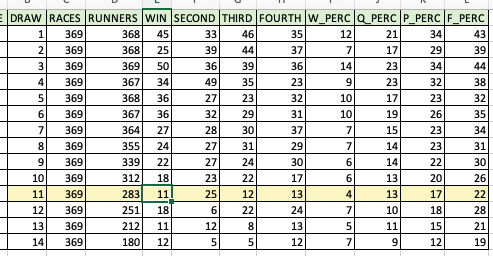
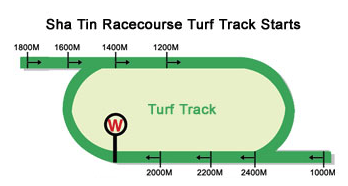
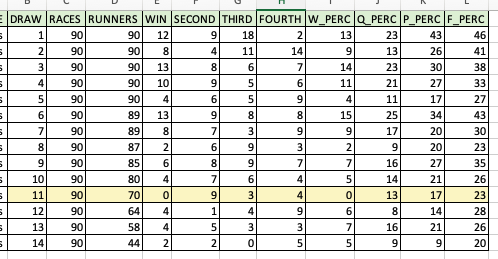

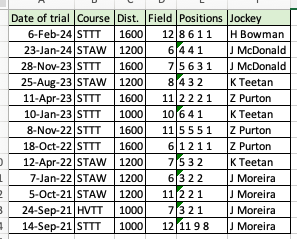

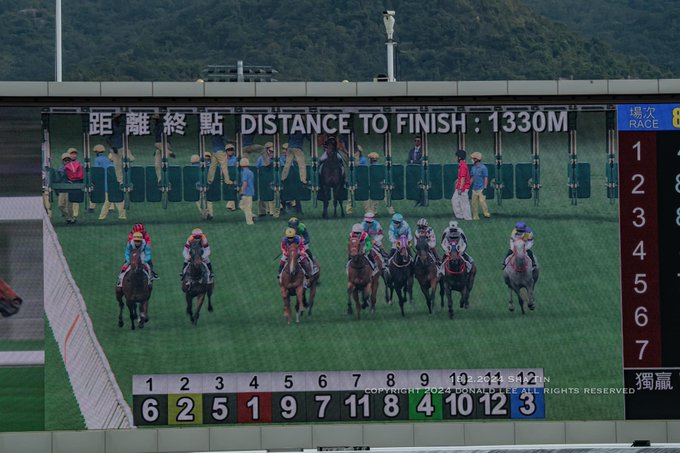
 RSS Feed
RSS Feed